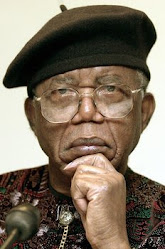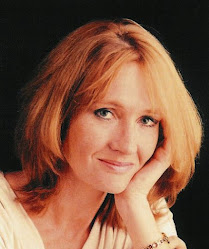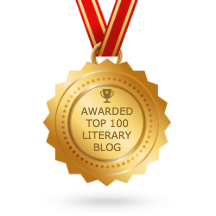The Nigerian author Jude Dibia needs little introduction. He has penned three absorbing novels -
Walking with Shadows,
Unbridled, and
Blackbird - and with each book he has shown remarkable prowess in tackling human complexity. He won the 2007 Ken Saro-Wiwa Prize for Prose and was a finalist in the 2007 Nigeria Prize for Literature. Here he is in an exclusive interview with
Incessant Scribble. Enjoy!

1. It has been almost 10 years since your debut novel
Walking with Shadows dared to confront the taboo subject of homosexuality. You got a lot of people talking. What were the initial responses you received when you sent out the finished manuscript to publishing houses? Did you have any fears while working and promoting this book? What were your expectations for
Walking with Shadows?
JD: Time does fly! It almost seems like yesterday that Walking with Shadows was released. The responses I got were mixed, but mostly positive in the sense that people were genuinely interested in the subject matter and wanted to have a proper dialogue on what it really meant to be gay and Nigerian. Only a year before the book was released Bisi Alimi, who now happens to be a good friend of mine, came out publicly as gay on a national television talk show and the backlash was devastating for him. I was not privy to watching that show but I heard about Bisi when my book was released and I saw some parallels in what he went through and what I wrote about. Surprisingly, I received a lot of feedback from women. Many said that unlike Ada, the protagonist's wife, they would have stayed with Adrian. However, getting the book published was challenging. No single publishing house in Nigeria was ready to take on the book. I got some encouraging words from a particular publisher but was told categorically that the subject matter was too controversial in spite of the fact that I did not portray any form of sexual engagement in the story.
There was always the fear that the book would not sell or that I could be ruined as a writer for writing a book that did not condemn homosexuality but rather showed tolerance and non-judgment of homosexuality. Yes, and then there was the talk that quickly spread about my own sexuality. But the truth was that I could not allow fears dictate how I write or what I choose to write about. One of the roles of a writer is to be as objective as humanly possible as well as being truthful and honest to the stories we write. Writers can't afford to censor themselves. In that light, my number one expectation was that it would reach as many people as possible, especially people who felt their stories were not being told or not told with any semblance of truth.
2. Could you share some positive and some negative feedback you've received over time from readers of
Walking with Shadows?
JD: I remember one email I received from a reader in Benin City; he was grateful that he found my book to read and felt that finally someone understood he was. He told me that after he read the book he was brave enough to give the book to his parents and told them to read it if they really wanted to understand who he was. There were other such appreciative feedbacks as well as some bad feedback as well. A few people have preached to me about "repenting" and accepting Jesus and stop promoting homosexuality! Some have wished me worse things including the hope that I am arrested by the government for the views expressed in the book. I have come to realize that a number of people who express such negative and harmful comments have not read my book but simply depend on hearsay and what they believe is a "gay book".
3. With your second novel
Unbridled you switch your focus to another topic people aren't eager to discuss. Abuse. There's physical and sexual abuse. There is incest. This time your protagonist Ngozi is female. How were you able to narrate as a female character and what steps did you take to do it authentically?
JD: The first draft of Unbridled was written from the third person point-of-view and when I was done, I realized that the book did not carry the weight I intended and seemed so detached. So, when I started work on subsequent drafts I decided to experiment with writing from the first person perspective. Many people are not aware that I started a blog and started posting chapters of Unbridled as a woman's personal account of her journey from being a victim to becoming independent and visible. The blog received a lot of visitors and comments and, there was one particular visitor who contributed a lot to how I arrived at Ngozi's voice. I found myself reading narratives from female writers and studying how they use words to describe feelings etc. I had to practically rewrite Unbridled from scratch and forget all my experiences as a man and reimagine everything as if I were a female. I also had a great substantive editor who worked on my finished manuscript.
4. In
Blackbird, Omoniyi deals with a lot as he struggles to make ends meet. What was you inspiration for
Blackbird and what do you hope to achieve with this book?
JD: With Blackbird, my main interest was how the government was discharging with the sale of some assets, especially Federal Housing Estates such as 1004, Eric Moore Towers and other structures. My research drew me to the Maroko incident of the early 90s and how in a move by government to gentrify the neighborhood thousands were displaced and till today a lot of these families have not been compensated or adequately resettled into new homes. The existing dichotomies present in Nigeria was hard to ignore and the image of one poor family with an out of work father and a very sick child against that of a wealthy family of a mixed race couple who seemed to have everything was an image that haunted me for a long time. As a writer, I write knowing that different people will draw different conclusions to a story. So, for some, it is a story of contrasts and for some it is a story that draws attention to the abuse of power.
5. You also touch on homosexuality in
Blackbird. In handling this topic two times in three novels, don't you worry about being typecast?
JD: There was a graphic scene, a recollection actually of one of the main characters, Omoniyi, where he was taught how to fight and defend himself by another character, Scorpion, who he admired. People have said it was homoerotic in nature especially the way I described Omoniyi's fascination with Scorpions toned physique and how it elicited a hard-on by Omoniyi. I like to think of it as playing with words and showing how words can paint different pictures. Was my description homoerotic in nature, I can't say the final outcome did not seem so, however, it was not my intention. If one reads closely, you will see that I was making a direct connection to the character succumbing to power. I don't worry too much about "typecasting" in that way, as very few established Nigerian writers bother to write about sexual diversity in any form.
6. Your books are currently being published outside of Nigeria. Let's talk about the money. A lot of people don't think writing can put food on the table. Are you able to live comfortably off your royalties? Do you have a career aside from writing?
JD: I do have a professional career, yes. But one can make tons of money from writing. There's this belief or idea that writing does not pay, but well it depends on the writer. Writing books may not be as lucrative as one may imagine, but there are other forms of writing that actually pays. Nigeria is a growing market and if you do some research you will find out that the media i.e. TV, radio, and cable are in dire need of fresh content. Writers provide the content and are getting paid for it. I make a modest turnover from my books.
7. If someone came up to you and said they were done with their manuscript and they want to get it published, what would you say the next step is?
JD: Hmmm. I will say that they should first get a seasoned and professional editor to work with. Most publishing houses don't have the patience for sloppy submissions. The writer should also be confident in his/her work; have an idea of his/her target audience and have an understanding of the market forces that influence publishers in his/her environment as well as the foreign market (this is not necessary, but helps with expectations et al).
8. Let's get you to play the game of "
Borrow, Buy, Bury". Looking back at all the books you've read, choose one book you'd rather borrow; one book you'd shell out your money for; and one book you think was a considerable waste of time.
JD: This is not a very nice game. Most of the books I have read, I bought them. And I don't believe it is right to belittle the effort of any writer, regardless! So, let me refrain from this sport.
9. Name two novels you've read twice.
JD: Toni Morrison's Paradise and James Baldwin's Another Country.
10. What do you think about: Life. Love. Music
JD: We all have just one life to live and so must do so knowing that we are responsible for the decisions we make. People will have many opportunities to love and be loved and I believe there are different kinds of love among consenting adults that must be respected. Music is like food to the soul.
11. What's NEXT for you? Are you working on anything currently?
JD: Yes, I am working on several writing projects at the moment and really cannot discuss them until they are ready for public consumption.
[Image via Facebook]
 "Isaac" leaves his home in Addis Ababa because he wants a better life than what his family can give him. He arrives Uganda and becomes friends with Isaac, a brazen young man from the slum, who's just as eager as "Isaac" to make something of himself. The chaos in Uganda and a curious combination of circumstances result in "Isaac" fleeing to America. He gets to America and is assigned to Helen, a social worker in Laurel, a tiny town in Midwest America. He's supposed to be just another one of her cases but they get pretty close.
"Isaac" leaves his home in Addis Ababa because he wants a better life than what his family can give him. He arrives Uganda and becomes friends with Isaac, a brazen young man from the slum, who's just as eager as "Isaac" to make something of himself. The chaos in Uganda and a curious combination of circumstances result in "Isaac" fleeing to America. He gets to America and is assigned to Helen, a social worker in Laurel, a tiny town in Midwest America. He's supposed to be just another one of her cases but they get pretty close. 



























